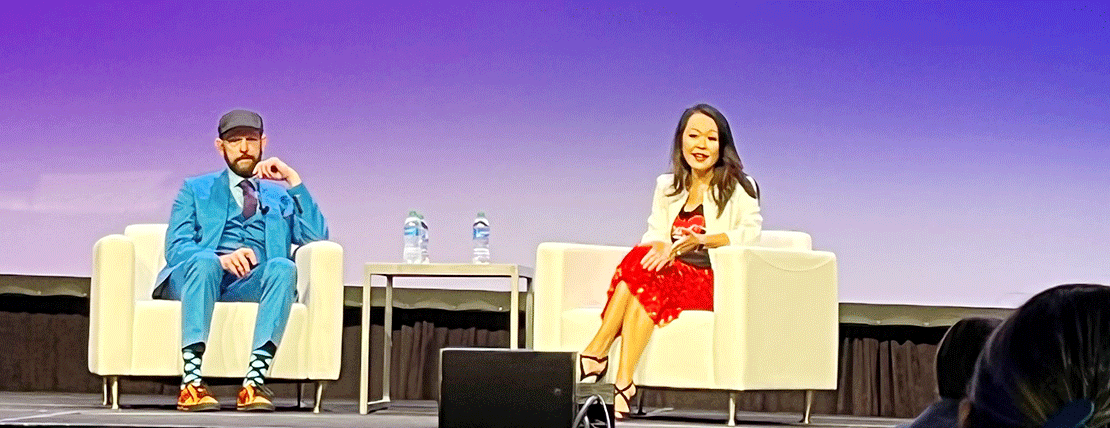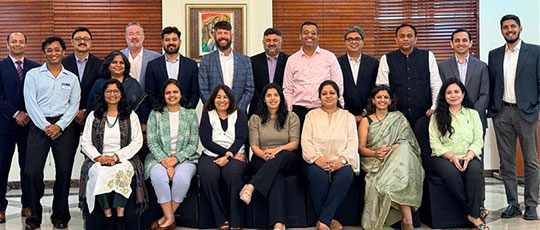To compete for talent in the current and future landscape, organizations will need to find ways to operate with more pace and frequency, and HR will lead the charge.
This was the theme of the opening keynote at WorldatWork’s “Rewards ’22” event in Atlanta on Monday. WorldatWork CEO Scott Cawood implored the more than 1,000 HR professionals inside the Georgia World Congress Center to move their organizations forward at a rapid pace, leaning on the practices deployed the past two years amid the COVID-19 pandemic.
“It’s no longer about getting a seat at the proverbial table,” Cawood said. “We are the table.”
Cawood emphasized the significance of user experience in all areas of the world and how that extends to work. He referenced a common example of the frustration one experiences when purchasing a product online and finding out they don’t qualify for free shipping, which sometimes leads to a refusal to purchase. Any friction could disrupt a potential conversion, and this is no different within an organization, he said.
“Bad managers, like free shipping, is going to cost you more right now,” Cawood said.
Cawood then welcomed Lilicia Bailey, chief human resources officer at Emory Healthcare, to the stage. Bailey highlighted the difference in the way work is performed now than it was pre-pandemic.
“We are experiencing a pivotal shift in the way that work is performed,” Bailey said. “It’s incumbent upon us to move in a direction that finds new solutions.”
Bailey then took the audience through an HR method she has coined as “PATT,” which stands for pivot, accelerate, transform, together. This acronym stands for the newly-developed version of HR leaders in how they are now well-positioned to accelerate the business in a collaborative and effective manner.
“It’s our time, it’s our opportunity to lead and to lead differently,” Bailey said.
The opening session then closed with Cawood having a candid conversation with Lisa Chang, global chief people officer at Coca-Cola Company. Chang explained how Coca-Cola navigated the pandemic with its workforce, especially the thousands of front-line workers it employs.
“We were very focused on making sure the health and safety of our frontline workers were prioritized during the pandemic,” Chang said.
Chang then explained Coke’s business strategy of moving from its core product to becoming an all-encompassing beverage company. The company recently purchased sports drink brand BodyArmor for $5.6 billion, adding to its wide-ranging and diverse portfolio of beverages. New products, brands and distribution have injected plenty of complexity into the Coca-Cola organization, but the core principles remain the same, Chang said.
“Coca-Cola has always been about its people,” she said. “But over the last seven years, it’s been on this transformation journey. And along the journey we’ve reached this place where now HR is really driving our strategy, which aligns with our people-driven organization.”
Chang said the HR function within the organization has transformed along with the organization the past couple years, noting that the company has become principle-oriented.
“HR and our people functions were always sort of the rule book of the organization,” Chang said. “There was not a manual for the last few years. We really had to lean in on things like purpose and values and that allowed us to move faster. We’re moving into principles away from policies. That allowed us the flexibility we needed to move faster.”
Chang then discussed how the global brand has handled the transition to remote work. While remote work was a necessity in many areas of the business in 2020 and 2021, the organization relies on a flexible working arrangement that has a simple principle. If people are planning to collaborate or need to work in a creative, team-oriented environment, the organization implores them to come to the office to do so. If employees are working in a solo capacity that doesn’t require collaboration, they are encouraged to work from home.
“We offer that flexibility and have guidelines in place to inform that decision making,” Chang said. “We do believe that flexibility has to come from both sides.”
Chang left the audience with encouraging words about HR becoming closer to leading organizations, noting a changing mentality when it comes to leading businesses.
“I think you’re going to see more organizations recognize that the most important role of the CEO is to make sure you have the right people in the right positions,” Chang said. “And that typically comes from the HR function.”








